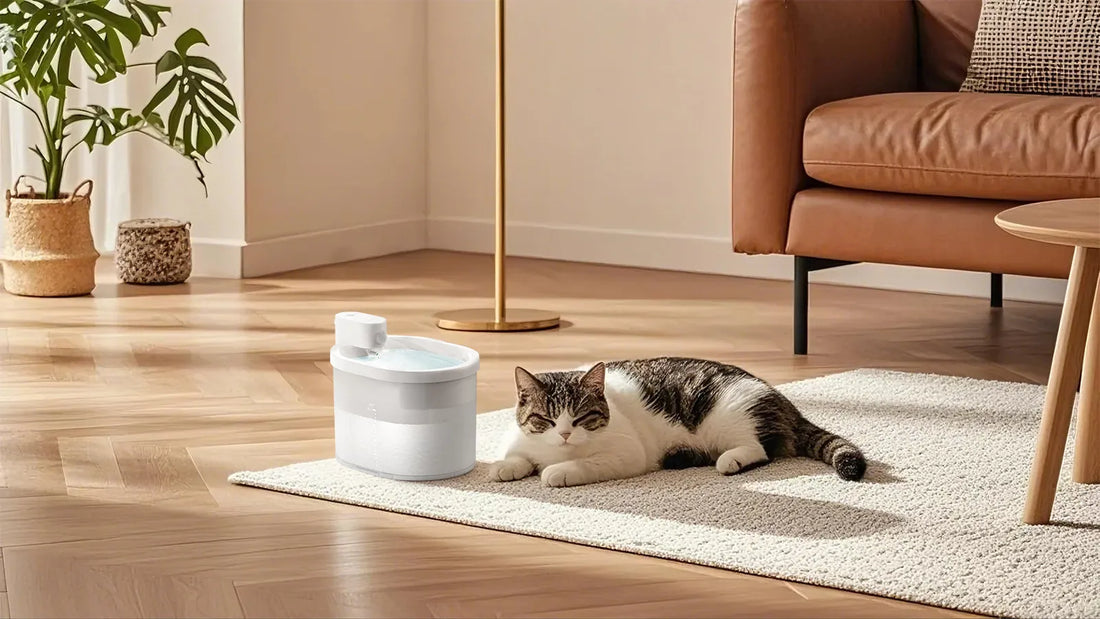If you've ever caught your dog drinking his pee, you're likely feeling a mix of confusion, concern, and even disgust. While this behavior may seem bizarre and alarming, it's essential to understand that dogs exhibit such actions for various reasons. This article delves into the possible causes behind why your dog might be drinking his pee and provides practical solutions to address this issue.
Understanding Canine Behavior
Dogs are complex creatures with behaviors that can sometimes baffle their human companions. Drinking urine, though unusual, is not entirely unheard of in the canine world. To comprehend why your dog might be engaging in this behavior, it's crucial to explore the underlying factors that could be driving it.
Instinctual Roots
In the wild, survival instincts often dictate animal behavior. For dogs, these instincts can sometimes manifest in ways that seem odd to us. Drinking urine might be a remnant of their ancestral survival tactics, where resources were scarce, and every drop of liquid was valuable. While domesticated dogs don't face the same challenges, these primal instincts can still surface.
Nutritional Deficiencies
One of the most common reasons dogs drink their pee is due to nutritional deficiencies. If your dog's diet lacks essential nutrients, he might resort to drinking urine as a way to compensate. This behavior can be a sign that your dog is not getting enough vitamins, minerals, or hydration from his regular meals.
Dehydration
Dehydration is another significant factor that can lead to this behavior. If your dog isn't drinking enough water, he might turn to his urine as a source of hydration. Ensuring that your dog has constant access to fresh, clean water is crucial in preventing dehydration-related issues.
Health Issues to Consider
While behavioral and environmental factors can contribute to your dog drinking his pee, it's also essential to consider potential health problems that might be at play. Certain medical conditions can lead to unusual behaviors, and addressing these issues is vital for your dog's well-being.
Urinary Tract Infections
Urinary tract infections (UTIs) can cause discomfort and changes in urination habits. Dogs with UTIs might drink their urine due to the pain or irritation they experience. If you suspect a UTI, it's crucial to consult your veterinarian for proper diagnosis and treatment.
Diabetes
Diabetes can lead to increased thirst and urination in dogs. In some cases, diabetic dogs might drink their urine as a way to quench their thirst. Monitoring your dog's water intake and urination patterns can help identify if diabetes is a potential cause.
Kidney Disease
Kidney disease can also result in changes in urination and thirst. Dogs with kidney issues might drink their urine as a response to the body's inability to retain fluids properly. Regular veterinary check-ups can help detect and manage kidney disease early on.
Behavioral and Environmental Factors
Beyond health concerns, various behavioral and environmental factors can contribute to your dog drinking his pee. Understanding these elements can help you address the root cause of the behavior effectively.
Stress and Anxiety
Stress and anxiety can manifest in numerous ways in dogs, including unusual behaviors like drinking urine. Changes in the household, such as moving to a new home or the arrival of a new pet, can trigger stress in dogs. Providing a stable and comforting environment can help alleviate anxiety-related behaviors.
Boredom and Lack of Stimulation
Dogs that are bored or lack mental and physical stimulation might engage in odd behaviors to entertain themselves. Ensuring that your dog gets enough exercise, playtime, and mental enrichment can prevent boredom-related actions like drinking urine.
Learned Behavior
Sometimes, dogs learn behaviors from their environment or other animals. If your dog has observed another dog drinking urine, he might mimic this behavior. Addressing learned behaviors requires consistent training and positive reinforcement to encourage more appropriate actions.
How to Address the Behavior
If your dog is drinking his pee, it's essential to take steps to address the behavior promptly. Here are some practical solutions to help curb this concerning habit.
Consult Your Veterinarian
The first step in addressing this behavior is to consult your veterinarian. A thorough examination can help rule out any underlying health issues that might be causing your dog to drink his urine. Your vet can also provide guidance on dietary adjustments and other interventions.
Ensure Proper Hydration
Make sure your dog has constant access to fresh, clean water. Dehydration can lead to unusual behaviors, so keeping your dog well-hydrated is crucial. Consider adding multiple water bowls around your home to encourage drinking.
Provide a Balanced Diet
Ensure that your dog's diet is balanced and provides all the essential nutrients he needs. If you suspect nutritional deficiencies, consult your veterinarian about potential dietary changes or supplements.
Increase Mental and Physical Stimulation
Engage your dog in regular exercise and mental enrichment activities to prevent boredom. Puzzle toys, interactive games, and daily walks can keep your dog stimulated and reduce the likelihood of odd behaviors.
Positive Reinforcement Training
Use positive reinforcement training to encourage appropriate behaviors. Reward your dog with treats, praise, or playtime when he exhibits desirable actions. Consistent training can help redirect your dog's behavior away from drinking urine.
Create a Stress-Free Environment
Minimize stressors in your dog's environment to reduce anxiety-related behaviors. Provide a safe and comfortable space for your dog, and introduce changes gradually to help him adjust.
Understanding why your dog is drinking his pee is the first step toward addressing this concerning behavior. By exploring the potential causes and implementing practical solutions, you can help your dog lead a healthier and happier life. Remember, consulting your veterinarian is crucial to ensure there are no underlying health issues. With patience and consistency, you can guide your dog toward more appropriate behaviors and strengthen your bond in the process.













